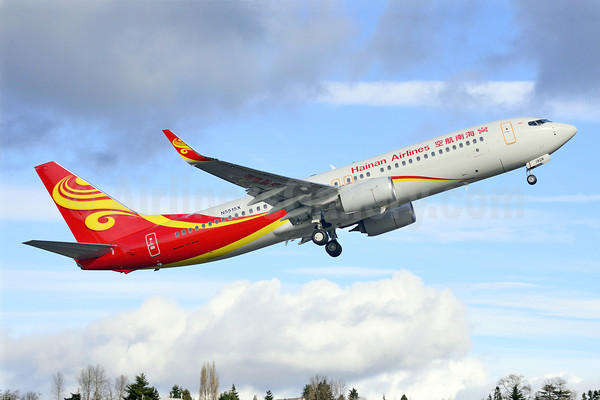Boeing Collaborates with QIBEBT
Boeing (Chicago, Seattle and Charleston), Hainan Airlines (Haikou and Beijing) and Sinopec celebrated China’s first passenger flight on March 21, with sustainable aviation biofuel, a key environmental milestone for China’s commercial aviation industry.
The regularly scheduled Hainan Airlines flight – which carried more than 100 passengers from Shanghai to Beijing in a Next-Generation 737-800 – used biofuel made by Sinopec from waste cooking oil collected from restaurants in China. Both of the airplane’s CFM International CFM56-7B engines were powered by a fuel blend of approximately 50 percent aviation biofuel mixed with conventional petroleum jet fuel.
Sustainably produced biofuel, which reduces carbon emissions by 50 to 80 percent compared to petroleum through its lifecycle, is expected to play a key role in supporting aviation’s growth while meeting environmental goals. The Boeing Current Market Outlook has forecast that China will require 6,020 new airplanes by 2033 to meet fast-growing passenger demand for domestic and international air travel.
In China, Boeing collaborates with a wide range of stakeholders to develop a new sustainable aviation biofuel industry. In 2011, Air China conducted China’s first aviation biofuel test flight in a Boeing 747-400 using China-grown, jatropha-based biofuel. Boeing also partners with the Commercial Aviation Corp. of China (COMAC) and several research institutions, including Chinese Academy of Science’s Qingdao Institute of Bioenergy and Bioprocess Technology (QIBEBT), on aviation biofuel development.
Boeing also works with airlines, research institutions, governments and other stakeholders to develop sustainable aviation biofuel in the United States, Africa, Australia, Brazil, Europe, Japan and the Middle East.
The news was originally reported on World Airline News.
 |